Reasons for Optimism

Regional and topical experts from across the Wilson Center share why they are optimistic about 2025



Regional and topical experts from across the Wilson Center share why they are optimistic about 2025

As the Dalai Lama often says, “Choose to be optimistic. It feels better.”
As Russia’s full-scale invasion of Ukraine marks its third anniversary, conflict in the Middle East seemingly takes new turns every day, and the level of forced human displacement is breaking all records, much of the public’s attention is focused on some of the daunting challenges we face on the world stage. But there are also many reasons to be hopeful—and optimistic.
2024 was certainly a consequential year, and 2025 is becoming just as important. As new and returning governments take shape after 2024’s “year of elections,” there will be many opportunities to uncover new ideas, forge new partnerships, and create new solutions.
That’s where the Wilson Center comes in.
The Wilson Center occupies a unique place in US foreign policy—we are congressionally chartered, scholarship driven, and fiercely independent and nonpartisan. Our network of experts—from our program teams to more than 4,000 fellows, scholars, and alumni is unmatched. Each and every day, they’re working to understand our ever-changing world and to deliver trusted, actionable analysis to our many audiences. Starting with this publication.
As
the Dalai Lama often says, “Choose to be optimistic. It feels better.”
Yes, 2025 will bring a new set of challenges. In many ways, identifying those challenges is the easy part. It’s also critical for us to identify, and capitalize on, the reasons for optimism— advancements in technology, resilience in the face of adversity, stability amidst transition, and more.
In the pages ahead, leaders from across the Wilson Center’s programs and initiatives offer just a few of the many reasons we see to be hopeful for 2025 and beyond.
We look forward to working with you in the exciting times ahead!
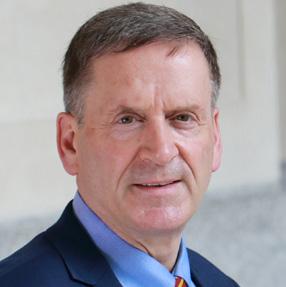
MARK ANDREW GREEN President and CEO, Wilson Center Ambassador and Congressman
(ret.)
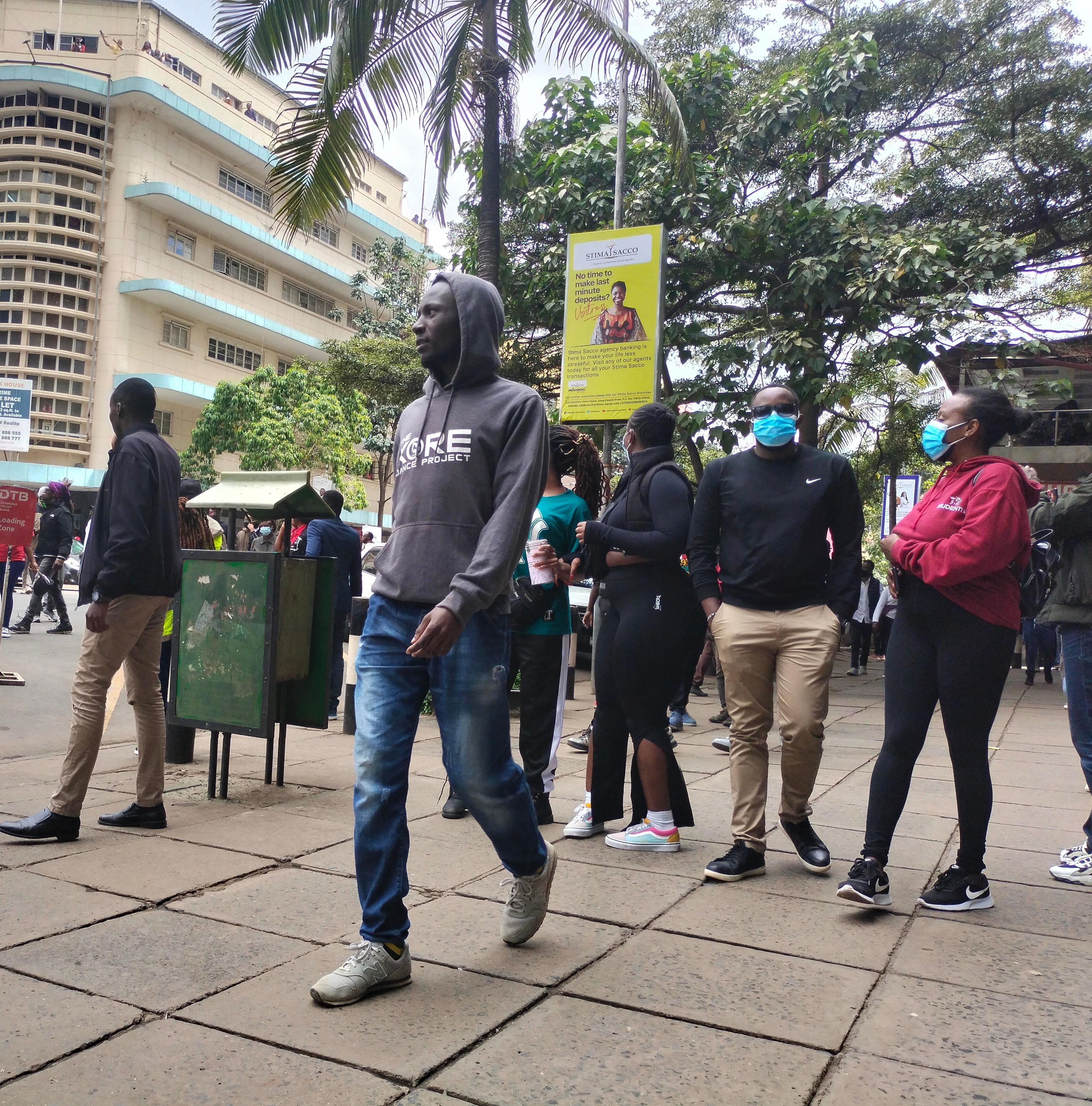
The 2024 narrative of democracy in decline in Africa often overlooked the democratic progress and economic opportunities on the continent.
While most Africans express dissatisfaction with democracy for failing to deliver better outcomes, a reassuring 66% of Africans remain committed to the values of democratic institutions and prefer democracy to other forms of government. This is higher than in Asia, Latin America, and the Middle East.
Yes, weak institutions, election manipulation, and insecurity remain key challenges in many African countries. However, 2024 was filled with inspiring examples of democratic resilience in countries such as Ghana, Botswana, South Africa, Liberia, Senegal, Nigeria, Mauritius, Cape Verde, Uganda, Kenya, and others, where citizens are demanding a new social contract with political elites and democratic institutions are upholding the rule of law and respect for human rights.
Even amidst the ongoing violent war and world’s largest humanitarian crisis in Sudan, civilian resistance committees are alive, and many have turned their efforts to delivering humanitarian aid while continuing to build a movement opposing the war.
In 2025, democratic politics in Africa will indicate a mix of reversals and advances, as politics across the continent remain dependent on the interaction of economic, social, geopolitical, and global factors. So, understanding how and why democracy in Africa has remained resilient amid these changes can strengthen US engagement with partner African countries.
Africans want to shape their own economic and social future, and many want to do this through democratic means. Africa’s demographic and economic landscape is changing rapidly. In 2025, 9 of the world’s 20 fastest-growing economies will be in Africa, and strengthening accountable democratic governance will be critical to ensuring resilient and equitable economic growth and development in these countries.
Despite 46% of African countries being classified as “not free,” increased civic activism driven by a vibrant youth population, digital technology, trade opportunities, and collective citizen action fuels my optimism for a positive future for democracy in Africa.
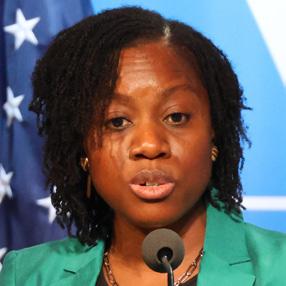
OGE ONUBOGU Director, Africa Program

The last decade has been deeply challenging for Brazil. Economic crises, a presidential impeachment, and escalating political polarization have strained the nation, creating uncertainty about its future. However, there are reasons for optimism.
Brazil’s economy has outpaced forecasts, with unemployment at its lowest level since 2012, despite inflationary pressures and fiscal challenges.
Domestically, Brazil’s democracy has shown resilience, even amid ongoing challenges. The rise of new and diverse voices in leadership positions offers hope for more inclusive and legitimate governance. Additionally, critical reforms have advanced in the past years, including in pension and tax systems.
Brazil’s consistent performance in the Global Innovation Index further underscores its potential. For four consecutive years, the country has ranked among the top 50 economies in innovation, thanks in part to institutions like Embrapa. Known for its groundbreaking agricultural research, Embrapa has cemented Brazil’s position as a leader in science and technology. As one of the world’s largest food producers, exporting to nearly 200 countries, Brazil is poised to play an essential role in global food security.
On the international stage, Brazil is regaining prominence by hosting key events like the G20 Summit in Rio and the upcoming COP30 in 2025.
On the international stage, Brazil is regaining prominence by hosting key events like the G20 Summit in Rio and the upcoming COP30 in 2025. These milestones highlight the country’s re-significance as a global player, especially in environmental and digital transformation agendas.
Being fully optimistic about Brazil is never easy, especially given the stark contrast between its vast wealth and persistent inequality. Yet, reflecting on the past decade highlights undeniable progress and emerging opportunities—a compelling reminder of the country’s future potential.
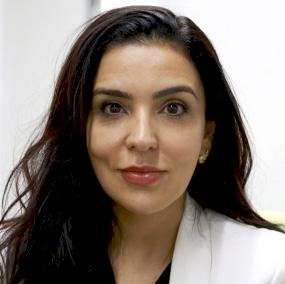
BRUNA SANTOS Director, Brazil Institute

At the 75th NATO leaders’ summit in Washington in May 2024, Canadian Prime Minister Justin Trudeau announced that Canada would meet its commitment to spend 2% of GDP on defense by 2032. This was the third time Canada made such a pledge—former PM Stephen Harper joined other NATO countries in making the Wales Summit pledge in 2014, and Trudeau renewed the commitment at the Vilnius Summit in 2023. Yet in 2023, Canada spent just 1.29% of GDP on defense.
This time, Canada may mean it. Recent polls from the Angus Reid Institute and CTV News show most Canadians now support spending 2% on national defense.
Yet Canada’s military procurement systems are considered out of date, broken, and ineffective by experts outside the Government of Canada.
The 2024 US National Defense Industrial Strategy redefined the defense industrial base to include US and allied production capacity for the first time.
The 2024 US National Defense Industrial Strategy redefined the defense industrial base to include US and allied production capacity for the first time. Collaborative defense procurement among allies allows governments to share technology and provide peer review on expenditures. The United States, Canada, and Finland are partners in the Icebreaker Collaboration Effort (ICE Pact), and Canada may join the Australia United Kingdom United States (AUKUS) agreement’s Pillar II on cybersecurity. Canada, Germany, and Norway are working together to design and develop new submarines.
Canada’s defense procurement problems are well-diagnosed, the commitment to increase defense spending now includes a 2032 deadline, and it has the support of a majority of the Canadian public. Canada’s allies are looking to collaborate. A Canadian federal election in 2025 should produce a government with a mandate to finally deliver on national security for Canada and for its allies.
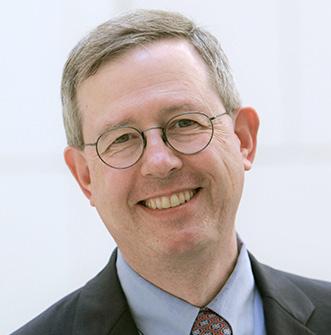
CHRISTOPHER SANDS Director, Canada Institute
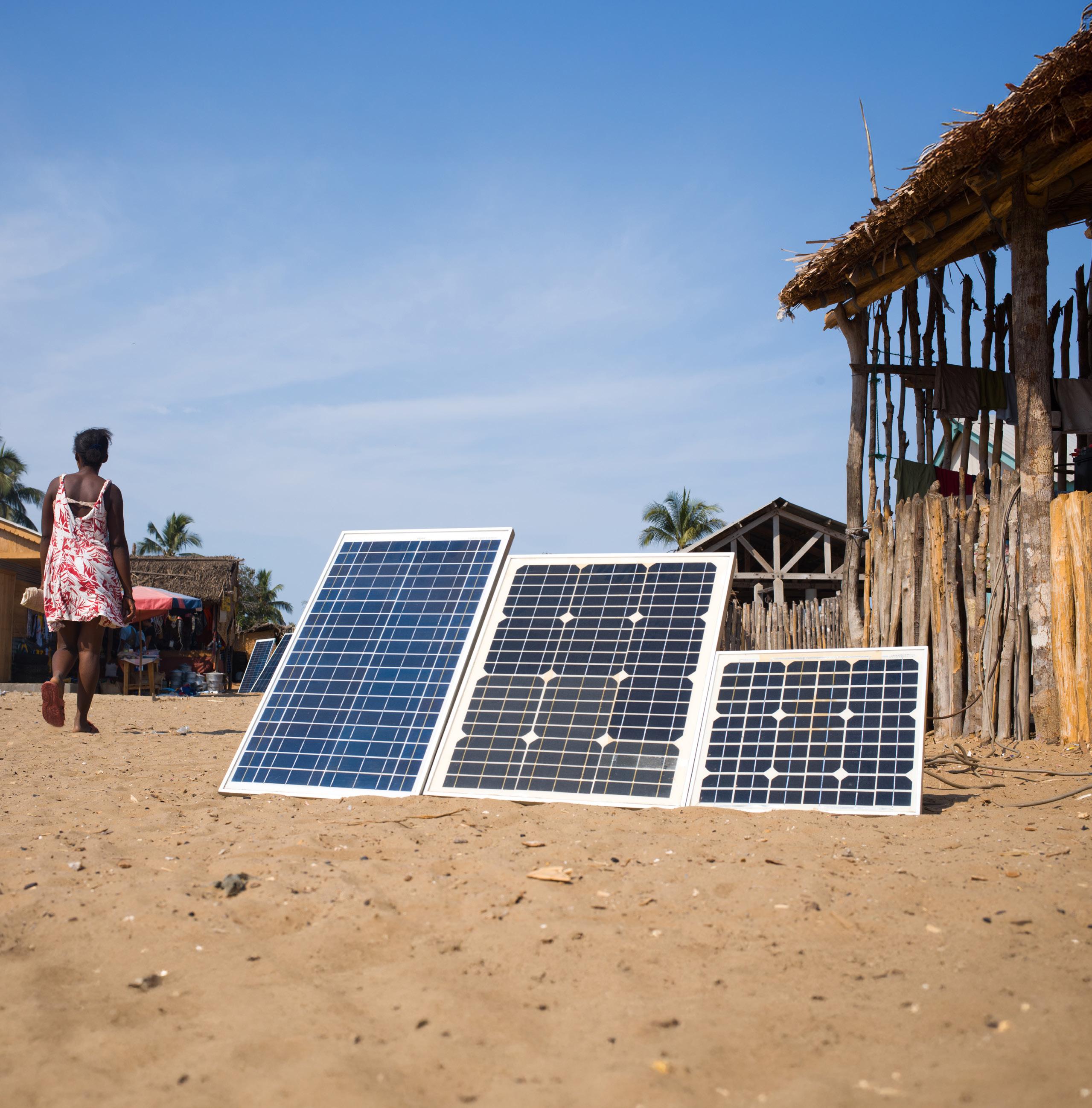
The Environmental Change and Security Program (ECSP) was founded 30 years ago in response to a burgeoning recognition that the environment can play an important role in peace and stability. The impacts of climate change—record wildfires, drought, hurricanes, heat—have heightened this awareness over the last decade by driving food insecurity, disrupting energy access and trade, heightening risks to human health, and propelling increased rates of migration and displacement. It is not an understatement to say that investments in climate action this decade will determine the habitability, stability, and security of life on our planet for decades to come. So it’s good news that in 2024 global spending on clean energy technologies and infrastructure was nearly double the amount going to fossil fuels, driven in large part by the private sector. This isn’t just good news for our climate, food, water, and health—it’s good news for job creation, energy access, innovations across technology, manufacturing, and construction, and the bottom line of many businesses.
For one, developing countries... require significant support to leapfrog fossil fuel-dependent development pathways.
As documented by ECSP, however, without clear-eyed policies and investments, efforts to propel the global transition to a renewable energy economy could create new risks (what we at the Wilson Center have termed “Backdraft”). For one, developing countries—like those in Sub-Saharan Africa where 600 million people lack access to electricity—require significant support to leapfrog fossil fuel-dependent development pathways. And as mineral-producing countries manage increased demand for the raw materials needed to power clean tech, risks are emerging, from the impacts of the mines on neighboring communities to the geopolitical chessboard of consuming-countries vying for access to those minerals. International cooperation, innovative financing mechanisms, and robust policy frameworks will be key to navigating these challenges and realizing the full potential of a clean energy future.
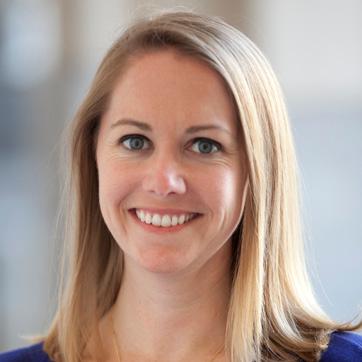
LAUREN HERZER RISI Director, Environmental Change and Security Program
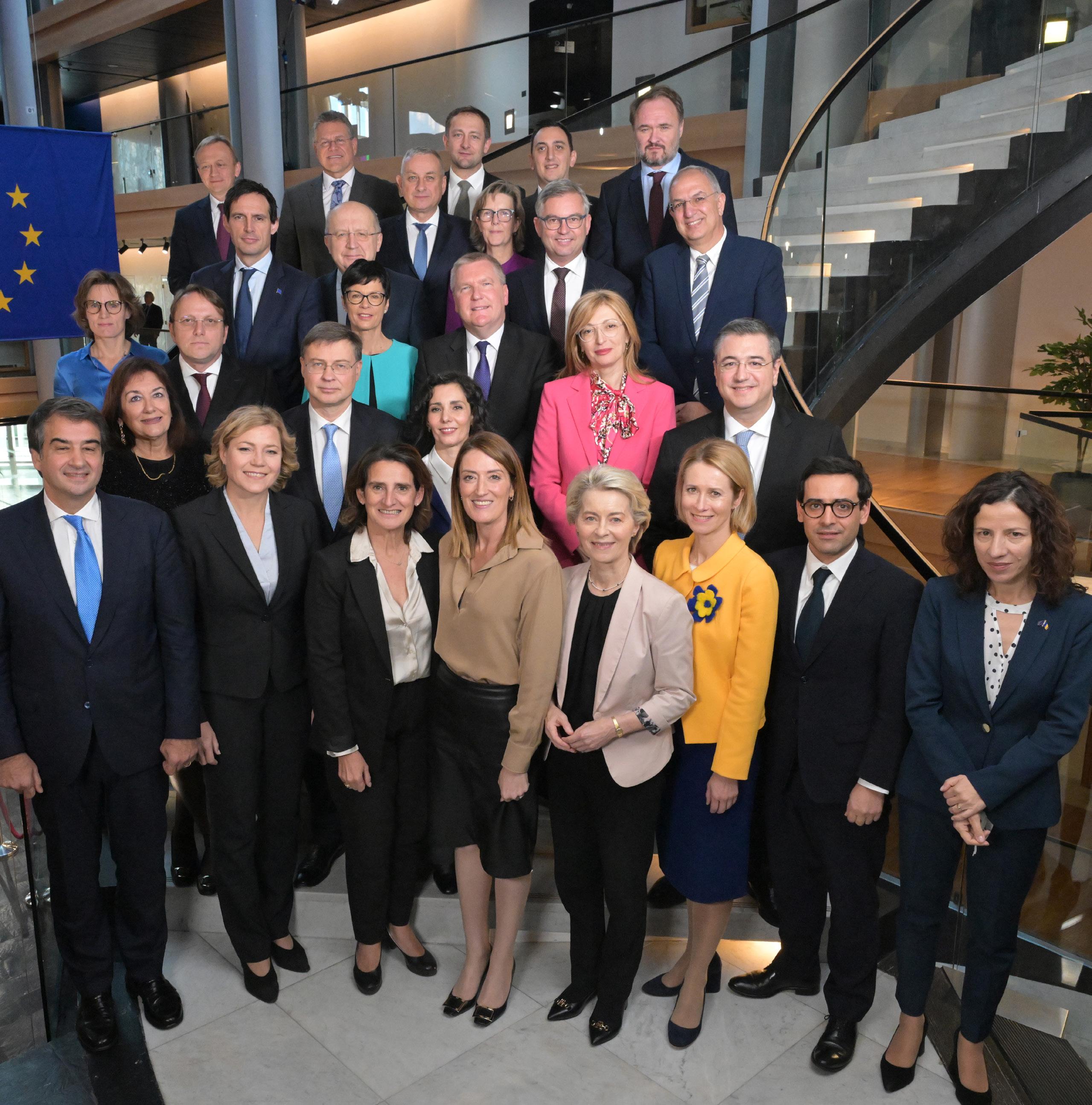
Both the NATO Alliance and the European Union experienced significant transitions in the fall of 2024. Just ahead of its 75th anniversary summit in Washington, NATO allies agreed on former Dutch Prime Minister Mark Rutte to succeed Secretary General Jens Stoltenberg, who led the alliance for a decade. Rutte assumed the role on October 1. The longest-serving prime minister in Dutch history, Rutte brings impressive negotiating experience, in-depth knowledge of European and EU politics, and an appreciation of the broad challenges to transatlantic security.
Most
importantly, von der Leyen has followed through on a pre-election pledge by creating a new commissioner for defense...
Following European Parliament elections in June, the EU will inaugurate its new Commission—in effect, its Cabinet—on December 1, 2024. While Ursula von der Leyen will remain the President of the Commission, the Commission itself will bring in new faces and a new agenda. Most importantly, von der Leyen has followed through on a pre-election pledge by creating a new commissioner for defense, which will focus on strengthening cooperation in the EU’s fragmented defense industry, improving investment, readiness and deterrence across the EU.
The changes at both the EU and NATO offer a unique opportunity to step up cooperation on both European and transatlantic security just as a new US administration takes office. Seizing this moment can bring productive synergy across the board.

ROBIN QUINVILLE Director, Global Europe Program
OPPOSITE: The von der Leyen Commission (Credit: European Commission) (FROM LEFT TO RIGHT) FIRST ROW: Raffaele Fitto, Henna Virkkunen, Teresa Ribera Rodriguez, Ursula von der Leyen, Kaja Kallas, Stéphane Séjourné, Roxana Mînzatu SECOND ROW: Dubravka Šuica, Valdis Dombrovskis, Hadja Lahbib, Apóstolos Tzitzikóstas THIRD ROW: Jessika Roswall, Olivér Várhelyi, Marta Kos, Michael McGrath, Ekaterina Zaharieva
FOURTH ROW: Wopke Hoekstra, Andrius Kubilius, Maria Luís Albuquerque, Magnus Brunner, Costas Kadis
FIFTH ROW: Piotr Serafin, Maroš Šefčovič, Jozef Síkela, Christophe Hansen, Glenn Micallef, and Dan Jørgensen

The History and Public Policy Program is working in partnership with the National Cold War Center in Blytheville, Arkansas to design and develop a state-of-the-art Museum of the Cold War. Established in 1991, the History and Public Policy Program’s Cold War International History Project is internationally recognized as a leading research center and clearinghouse for Cold War history. Its award-winning free-access Digital Archive features thousands of declassified documents from archives around the world. In December 2023, the US Congress designated the former Blytheville Air Force base as a federal museum to preserve and tell the history of the Cold War. We are looking forward to the groundbreaking of this new museum in late 2025, and I am thrilled to be leading the partnership.

DR. CHRISTIAN F. OSTERMANN Director, History and Public Policy Program


A call for change is sweeping northeast Asia amid rising geopolitical risks across the Indo-Pacific. So too is a growing appetite to oust incumbents to seek leadership change to confront the changing realities. For the leaders of Taiwan, South Korea, and Japan, 2024 was a particularly tough year to win over the confidence of voters. But amid the pushback against the established order, and even democratic governance, faith in the rule of law and orderly governance is expected to stay strong.
South Korea continues to grapple with the consequences of President Yoon Suk Yeol’s shortlived decision to declare martial law. But the National Assembly’s immediate response to vote against the declaration, defy Yoon’s action, and follow a clear constitutional process to restore order is a strong sign of the ROK’s robust democracy and Koreans’ vigorous commitment to personal freedoms.
In Taiwan, meanwhile, an unwavering commitment to democracy remains the pillar for governance in Taipei. While Taiwanese President Lai Ching-ten continues to be locked in a power struggle with the opposition Kuomintang Party since the January 2024 elections, attempts to bolster the power of the legislature have been managed in an orderly, democratic process.
For the leaders of Taiwan, South Korea, and Japan, 2024 was a particularly tough year to win over the confidence of voters.
Political tensions prevail in Japan too, as Prime Minister Shigeru Ishiba’s Liberal Democratic Party suffered its biggest setback result since 2009 in the October election. The odds may be against Ishiba holding on to power throughout 2025, but there is no questioning the power of the rule of law.
While leaders in northeast Asia may find their tenure under even further strain in 2025, expectations for democratic governance and adherence to the rule of law should prevail.

SHIHOKO GOTO Director, Indo-Pacific Program

There were few reasons to be optimistic about Eurasia in 2024: Russia’s full-scale invasion of Ukraine crossed the 1,000-day mark. More than one million Ukrainians and Russians were estimated to have been killed or injured in battle. Belarus continued to lose its sovereignty to Russia, which, in addition to serving as a staging ground for Russian troops, also helped Russia abduct and “reeducate” Ukrainian children. Georgia passed a Russian-style “Foreign Agents’ Law” and reelected the Georgian Dream party, a pro-Russia party, in an election that was not deemed free or fair by outside observers. Consequently, Georgia frustrated its EU and US allies and all but ended its EU aspirations.
On a positive note, Moldovans reelected their pro-EU president despite her campaign having been beset by Russian disinformation. Additionally, Azerbaijan hosted COP 29, the United Nations Framework Convention on Climate Change’s annual Conference of Parties (COP). While Azerbaijan’s human rights record and ambiguous stance toward Russia do not endear it to the West, the fact that Azerbaijan was the first former Soviet republic selected to host a COP since the institution’s founding in 1995 is significant. If there are reasons to be optimistic about Eurasia in 2025 that did not exist in 2024, and I believe there are, one reason would be the West’s greater interest in the countries that make up the region (Belarus, Ukraine, Moldova, Georgia, Azerbaijan, etc.), and the acknowledgment that they merit attention in their own right—especially if Russia’s malign ambitions are to be stopped.
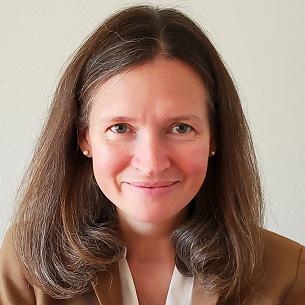
JENNIFER WISTRAND Deputy Director, Kennan Institute
On a positive note, Moldovans reelected their pro-EU president despite her campaign having been beset by Russian disinformation.
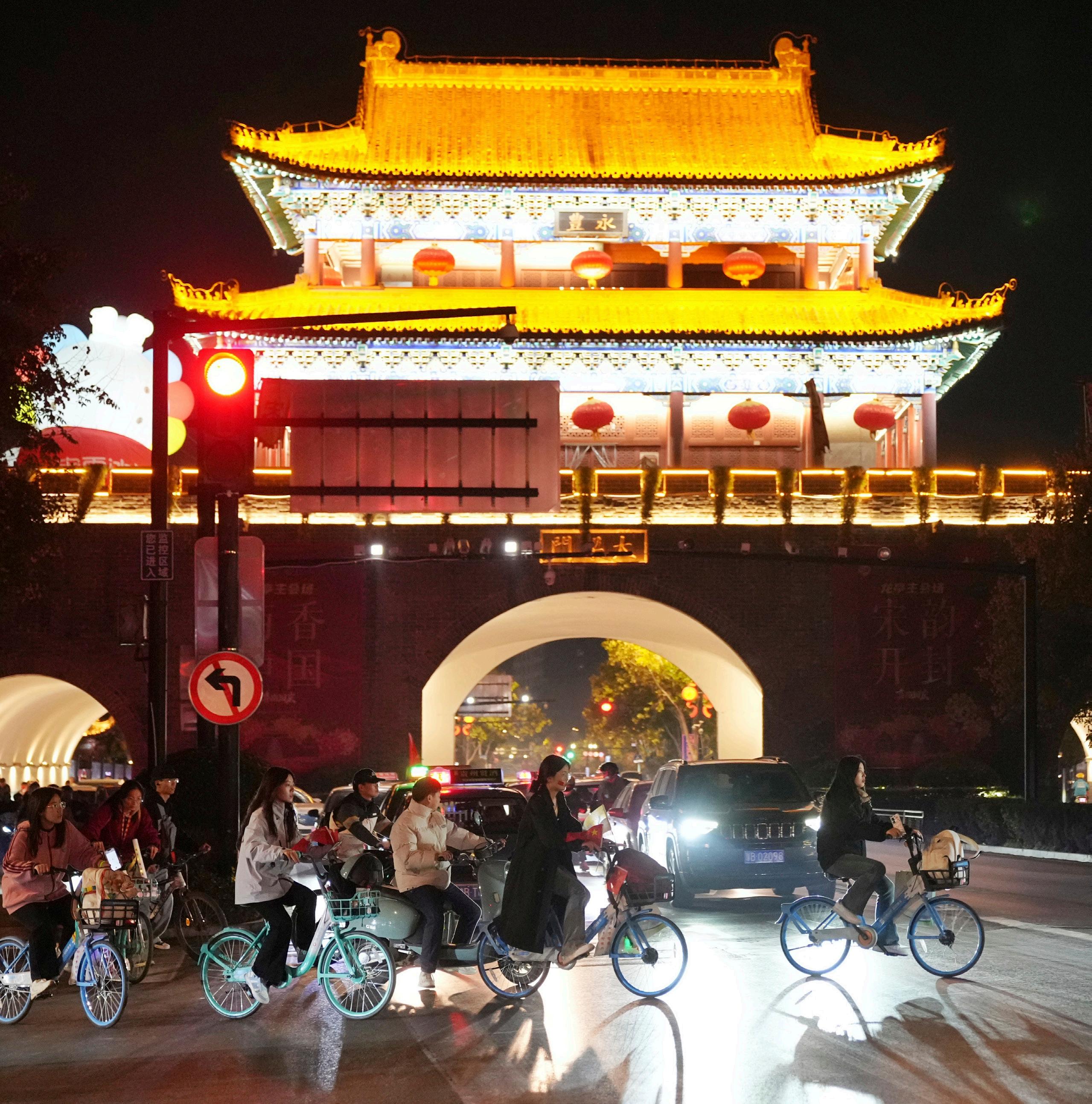
There are no true elections in China. The Chinese are finding, however, that merely by living as they wish, within the law, they can shape society even when their behavior defies Chinese Communist Party (CCP) goals.
Voting with their wallets: Despite the CCP’s attempts at stimulus and deep concerns about deflation, Chinese consumers are “self-insuring” by saving money in anticipation of further economic decline, weakness in the real estate sector, and an inadequate social safety net.
Voting with their feet: China’s emigration rate rose during COVID and its aftermath. Many rich Chinese moved with their families and as much wealth as they could transfer to Singapore, Japan, and points west, where they set up family offices and applied for passports.
Voting with their diplomas: While China provides a college education for an ever-higher percentage of its youth, families are sending their kids overseas at ever-younger ages so they can enjoy their childhoods and escape the brutal gaokao exam system.
Voting against the patriarchy: The CCP exhorts young Chinese to marry early and have more children, yet women are voting with their marriageability and fertility—against the CCP and in favor of their own autonomy. They are marrying late, if at all, and having only one child, if any.
Voting against the rat race: Put off by high unemployment rates and abusive work cultures, young Chinese are opting out of competition by “lying flat” or “letting it rot” in their parents’ apartments. It’s a stunning demonstration of ennui in a nation that demands “positive energy.”
Voting for fun: Young people in Shanghai don Halloween costumes and those in Henan “don’t organize” spontaneous late night mass bike rides for the sheer pleasure of it, despite government wariness of Western influence and mass movements. Chalk one up for goofiness.
These are urban, elite behaviors; the peasantry and blue-collar workers in second-tier cities are not involved. But urban elites—women in particular—are the change agents in China.
A dark aspect of behavioral voting is revealed in the increase in mass killings in China in 2024.
Such actions don’t portend a color revolution or a desire to live under American-style democracy, but it is encouraging to see Chinese people finding ways to shape their own lives even as China’s party/police state tries to tighten social control.
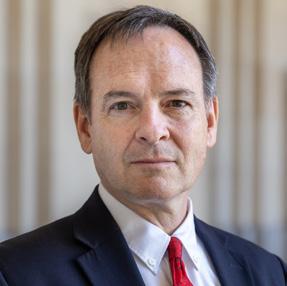
ROBERT DALY Director, Kissinger Institute on China and the United States
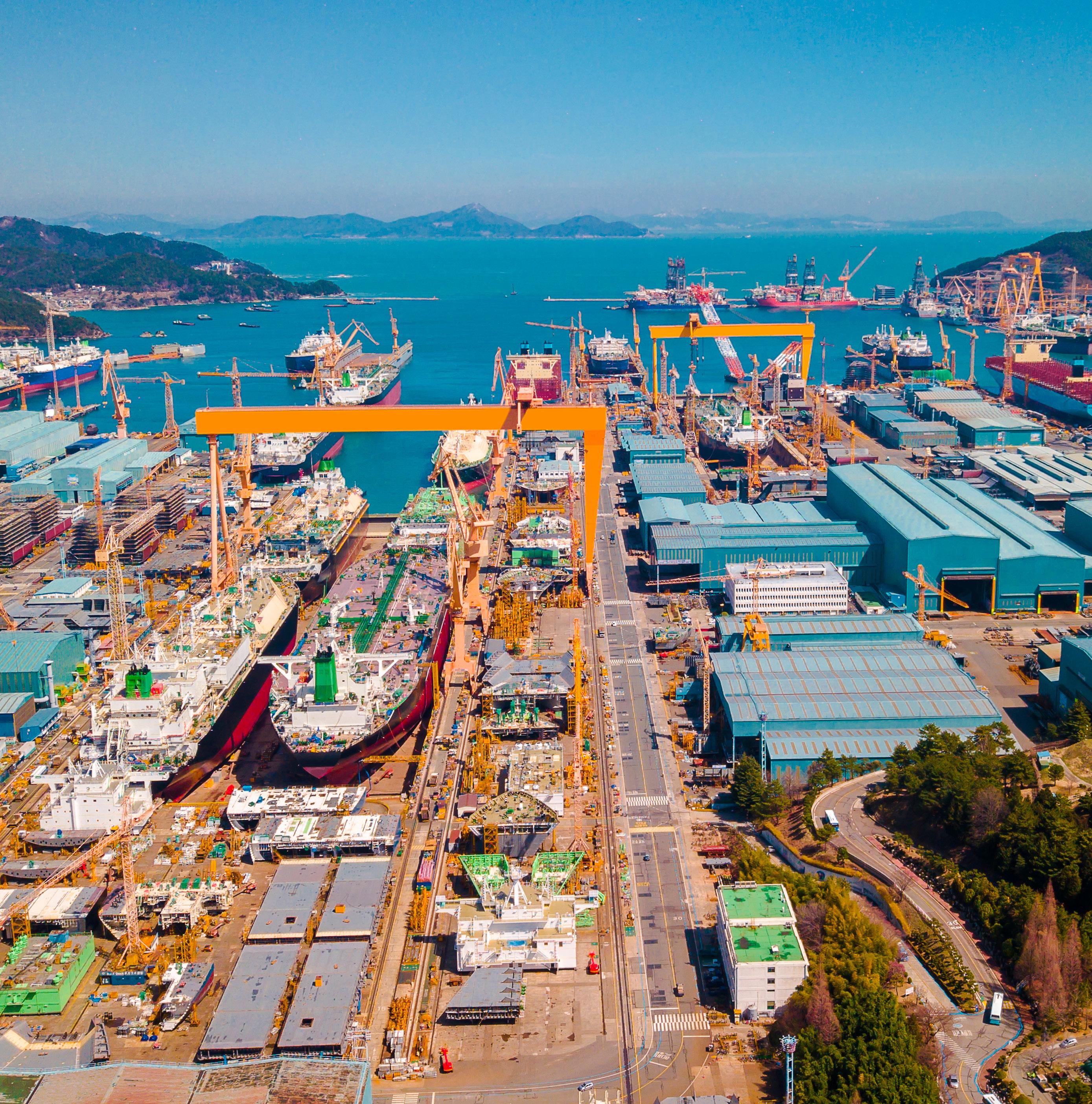
In May 2024, the US Department of Defense released the Regional Sustainment Framework (RSF) to ensure that in a contested logistical environment there is access to maintenance, repair, and overhaul (MRO) near the point of need. As the US transitions to this new system, South Korea is serving as a key partner to pilot this new approach to MROs.
The new framework taps into a need to draw on allied shipbuilding and repair capacity at a time when a combination of budget cuts and prior market liberalizations have left the United States without the capacity it needs to build and repair warships. In recent years, new construction orders have faced delays and fewer than 40% of repairs were completed on time.
Hanwha Ocean, a leading South Korean shipbuilder, signed a Master Ship Repair Agreement making it the first South Korean firm eligible to conduct MROs on US warships.
This is where South Korea, which has the world’s leading shipbuilding capacity outside of China, can play a larger role as a maintenance hub. In July 2024, Hanwha Ocean, a leading South Korean shipbuilder, signed a Master Ship Repair Agreement making it the first South Korean firm eligible to conduct MROs on US warships. In combination with Hanwha’s recent purchase of Philly Shipyard, a leading US shipbuilder, it is well placed to not only conduct MROs in the Unites States but to help pilot the new RSF.
Since receiving its MSRA certification, Hanwha has won two MROs. One for the USNS Wally Schirra, a dry cargo and ammunition ship, and the other for the USNS Yukon, an oil replenishment ship. With President-elect Trump also suggesting the United States may turn to South Korea for the construction of naval vessels, South Korea is set to become an increasingly important partner for the US Navy.

TROY STANGARONE
Director
of
the Hyundai Motor-Korea Foundation Center for Korean History and Public Policy
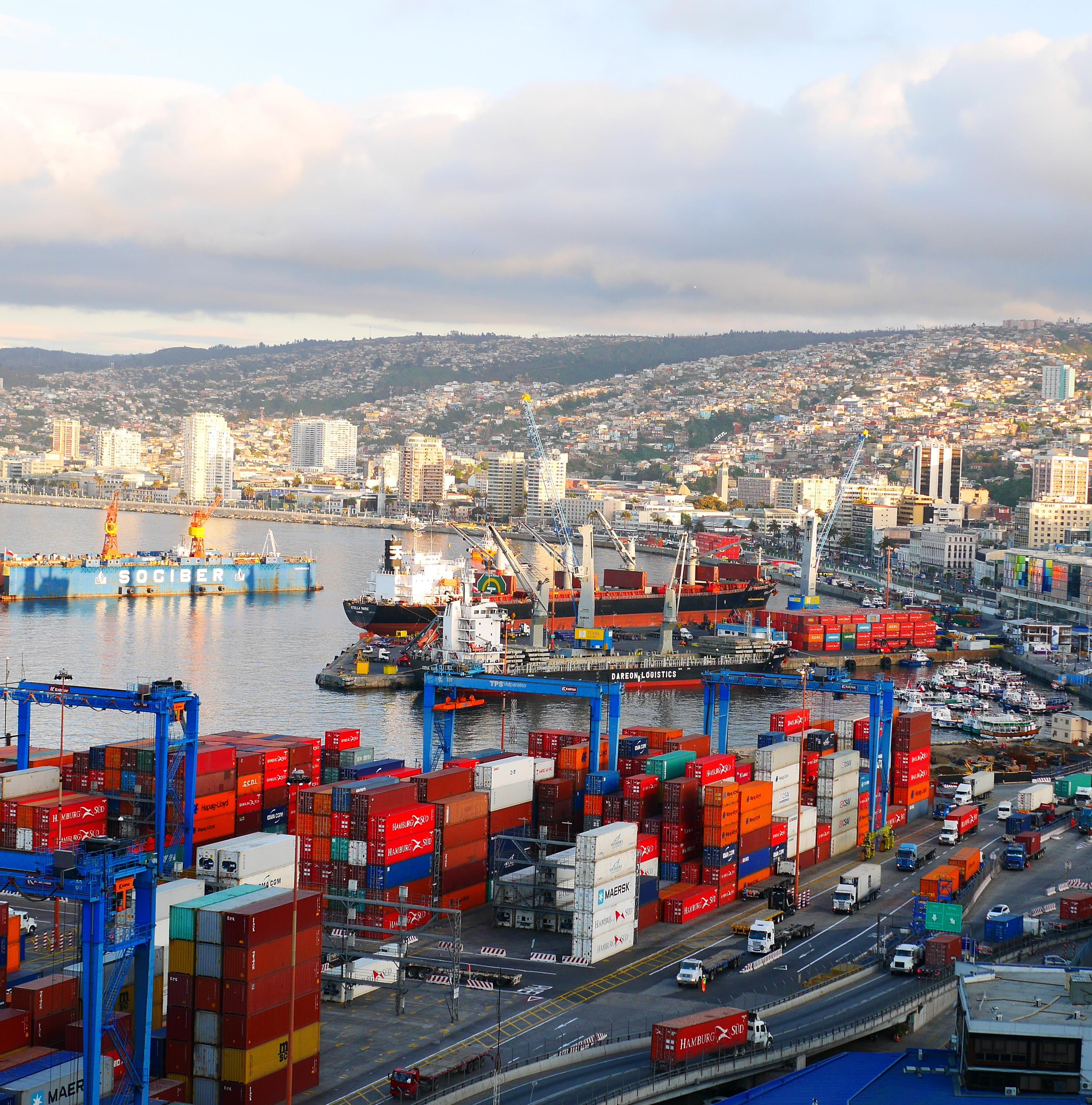
In recent years, as the United States lost its taste for free trade agreements, it was not clear whether its neighbors in Latin America and the Caribbean would follow suit. After all, Washington had long driven the regional trade agenda, from its multiyear, unsuccessful attempt to build a Free Trade Area of the Americas to its successful negotiations with Chile, Colombia, Costa Rica, the Dominican Republic, El Salvador, Guatemala, Honduras, Mexico, Nicaragua, Panama, and Peru.
As it turns out, Latin American governments have continued their pursuit of economic integration. Chile, Mexico, and Peru helped keep the Trans-Pacific Partnership alive after the United States stepped away; in November, the bloc invited Costa Rica to join. Members of Mercosur—Argentina, Brazil, Paraguay, and Uruguay—have not given up hope for a free trade agreement with the European Union, though negotiations have dragged on for two decades. In some cases, leaders who heard crickets in Washington after requesting trade deals later turned to China, as was the case of Ecuador.
Today, the region is bracing for new tariffs on their exports to the United States. Even so, many governments still hope to build closer links to the world’s top economy. Ecuador and Uruguay hope to join the United States-Mexico-Canada Agreement and Argentina’s new president is petitioning Mercosur for the right to negotiate a bilateral deal with the United States. In the meantime, 11 countries signed on to the Americas Partnership for Economic Prosperity, an initiative designed to deepen economic integration in the absence of increased market access.
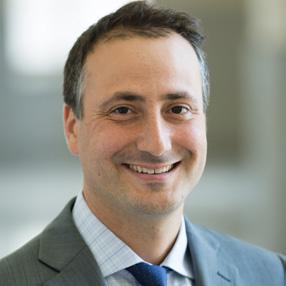
BENJAMIN GEDAN Director, Latin America Program
Even so, many governments still hope to build closer links to the world’s top economy.

In 2025, the global community will mark the 30th anniversary of the Beijing Declaration and Platform for Action, a watershed moment for global policy attention to gender equality, development, and peace for all women. This years’ Commission on the Status of Women will focus on the effectiveness of the Platform of Action and its contributions toward the full realization of the 2030 Agenda for Sustainable Development. The 30th anniversary of when we first heard, “Human rights are women’s rights and women’s rights are human rights,” is a time to take stock of progress made, reaffirm commitments, and refocus efforts to close the gaps in gender equality worldwide.
Evidence shows that effective governance systems, independent of a country’s wealth, are tied to better maternal health outcomes: the greater the governance, the lower the rate of maternal mortality. Research on women, peace, and security also shows that gender equality is a key indicator of a nation’s stability and that the inclusion of women in peace processes leads to more sustainable and comprehensive outcomes
Evidence shows that effective governance systems, independent of a country’s wealth, are tied to better maternal health outcomes.
In 2025, the Beijing+30 framework will reinforce the need for action to advance gender equality and emphasize the need to address the unique challenges faced by marginalized groups, including women living in conflict-affected areas, those impacted by climate change, and the persistent realities of gender-based violence and maternal deaths.
Leveraging this moment to achieve renewed political will, robust investment, and effective partnerships will help ensure that maternal health and gender equality remain centered in global objectives to meet the 2030 Sustainable Development Goals.

SARAH B. BARNES Director, Maternal Health Initiative
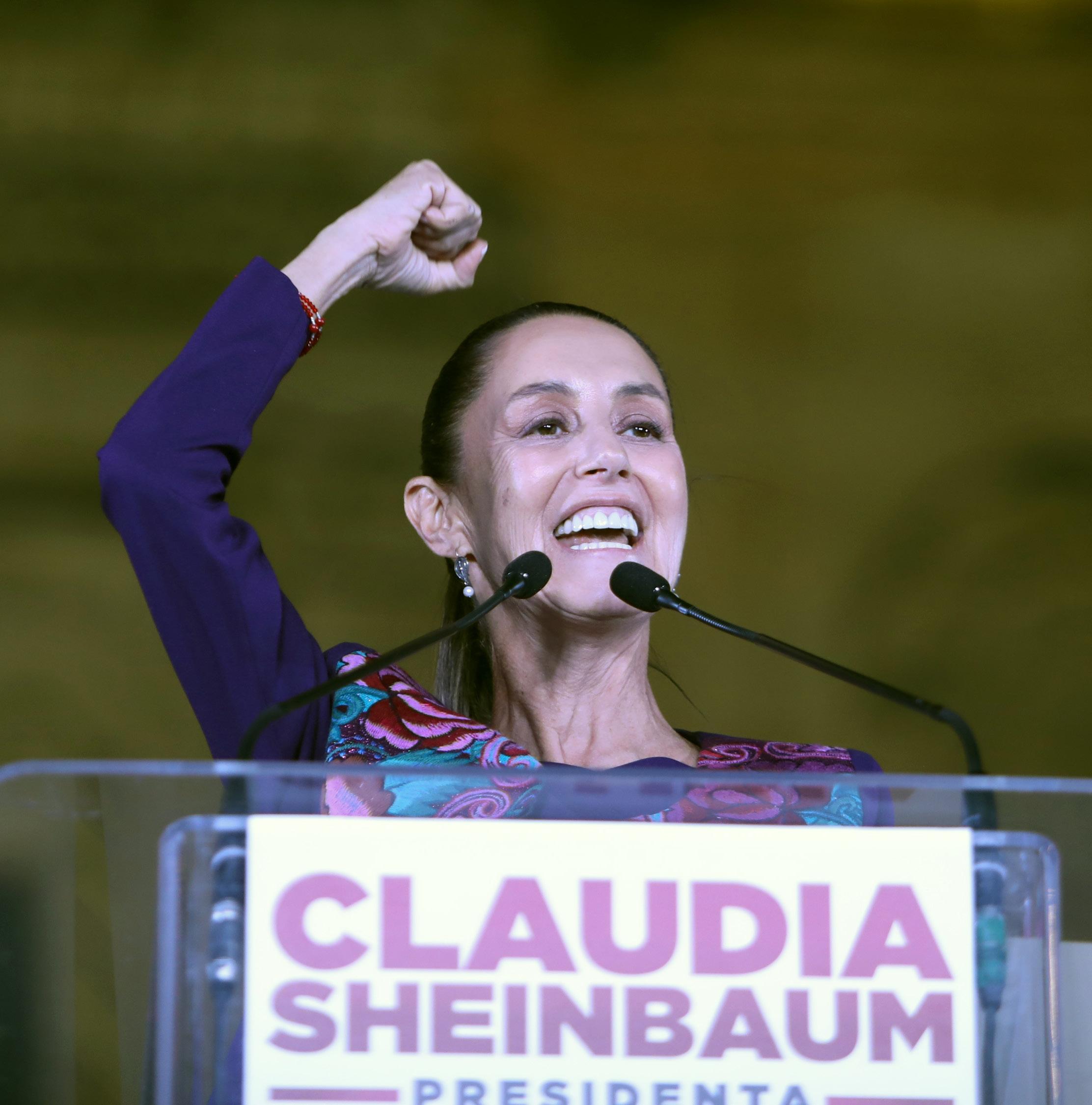
Since taking office in October, Mexican President Claudia Sheinbaum, has prioritized ways to address the increasing levels of insecurity across the country. To combat violence and organized crime, President Sheinbaum’s security strategy comprises four pillars: (1) addressing the root causes of violence, (2) consolidating the National Guard under the Ministry of Defense, (3) strengthening intelligence gathering and investigation capabilities, and (4) improving coordination among security agencies across the government. The strategy does include elements from her predecessor’s security plan, but it also marks a clear deviation.
Sheinbaum’s Secretary for Security and Civilian Protection (SSPC), Omar Garcia Harfuch, announced the creation of a National Intelligence System that seeks to strengthen intelligence capabilities to combat homicides, high-impact crimes, and transnational criminal organizations in the country’s six most violent states. Mexico’s congress recently granted the SSPC enhanced powers. The institution that Garcia Harfuch leads will be able to conduct its own investigations and have intelligence agents that work in tandem with the military to capture high-level criminals.
Sheinbaum’s strategy opens potential avenues to strengthen the US-Mexico relationship at a moment when bilateral security cooperation has declined.
Sheinbaum’s strategy opens potential avenues to strengthen the US-Mexico relationship at a moment when bilateral security cooperation has declined. Sheinbaum’s government and the incoming US administration can work on reestablishing mutual trust and developing joint actions on shared security interests and challenges. The possibility of aligning security objectives at such a critical juncture injects a breadth of optimism for the future of US-Mexico relations.

LILA ABED Director, Mexico Institute

The Middle East is proving to be a new hub for technology—particularly for artificial intelligence (AI). There is the most recent announcement that Google Cloud is partnering with the Saudi Public Investment Fund to establish an AI hub in the country, which may serve as a starting point for a broader $100 billion initiative. Before that, Qatar hosted the World AI Summit, and Microsoft announced an historic partnership with the UAE’s G42 and another with Bahrain’s Tamkeen (the Labor Fund) and Polytechnic University. This all adds up to show the Gulf Arab states racing to capitalize on the economic benefits of new and more efficient technology.
Central to most of these partnerships are capacitybuilding mechanisms to train the next generation of the Middle East/North Africa workforce for the digital economy, which is critical in a region that is both youthful and highly educated. The GoogleSaudi partnership includes AI training for students in the ICT sector. Bahrain has its Artificial Intelligence Academy for professional certificates and Amazon Web Services Cloud Innovation Center for public research. The Dubai Future Foundation also offers various programs to equip the next generation for a tech-led future. In the Gulf Cooperation Council, where governments are laser-focused on increasing labor force participation, the benefits not only to youth but to women are particularly promising. Gulf Arab women are graduating with STEM degrees at a rate higher (60%) than in the US, where women comprise 20% of bachelor-level engineering degrees. AI can also facilitate women entrepreneurs as it lowers cost and increases efficiency.
Gulf Arab women are graduating with STEM degrees at a rate higher (60%) than in the US.
These tech-led initiatives and partnerships between the budding tech sector in the region and the United States will surely propel the region forward, offering a window of much needed hope at a time of heightened uncertainty and insecurity.
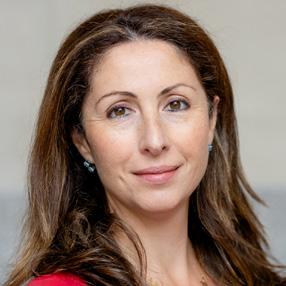
MERISSA KHURMA Director, Middle East Program
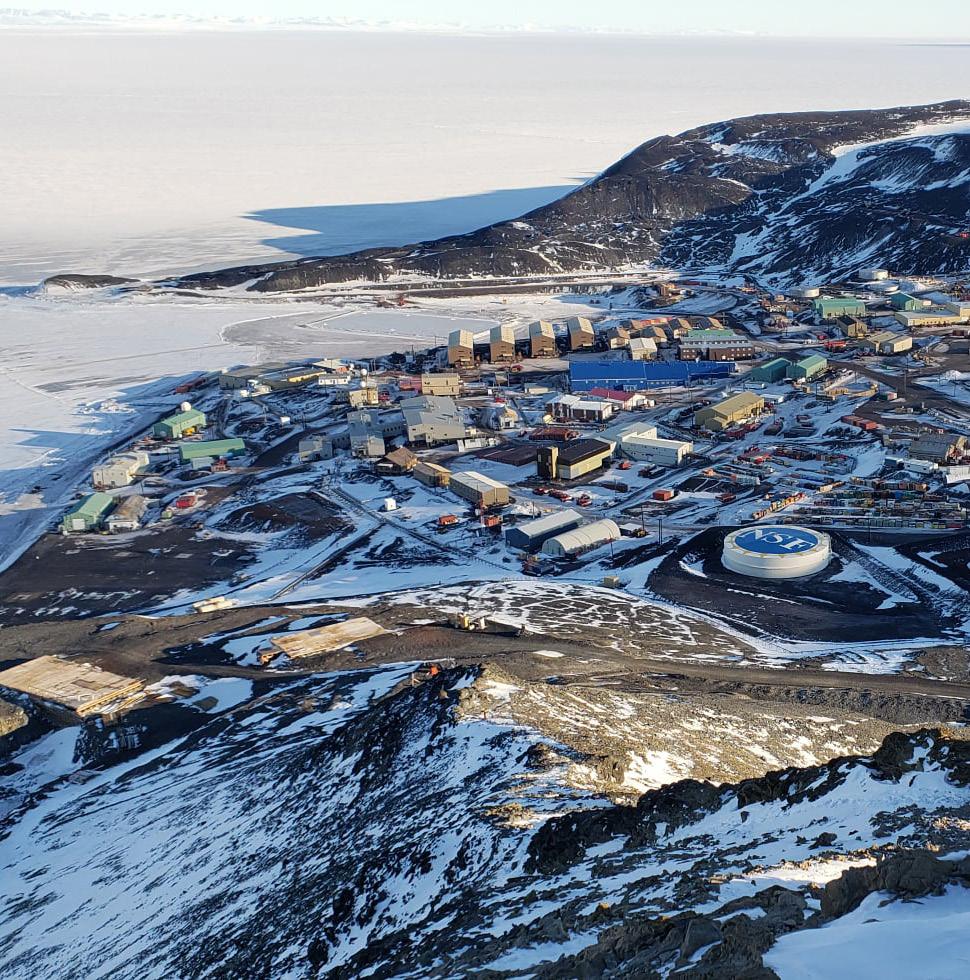
The polar regions—the Arctic and Antarctica—may seem distant but are intimately connected to many of today’s key foreign policy issues. Global recognition of the importance of the polar regions is growing, and I am optimistic that this trend will continue in 2025.
From space to the seafloor, the polar regions are important geographies, including some of the least well-understood and fastest-changing parts of the globe. And while they are governed by a robust set of agreements, treaties, and other governance instruments, that has not dissuaded those intent on weakening the global rules-based order. Increasing cooperation between China and Russia includes in the polar regions, where the two have teamed up to block progress in Antarctica, and deepen military and coast guard cooperation in the Arctic.
The polar regions are key to our national security, economic prosperity, cutting-edge science and technology, and to the global rules-based order.
Growing recognition of the importance of the polar regions was evident in 2024, seen in the confirmation of the first-ever US Ambassador-at-Large for Arctic Affairs, the first spotlight on the cryosphere at COP29, among other developments.
This growing awareness is not a minute too soon—2024 saw evidence of continuing drastic changes in the poles, including the loss of sea ice and record high temperatures.
In 2025, the US and its allies and partners around the world can leverage shared interest in the Arctic and Antarctica to build upon this progress and advance common interests. The polar regions are key to our national security, economic prosperity, cutting-edge science and technology, and to the global rules-based order. The first step is recognition. The next is action.

REBECCA PINCUS Director, Polar Institute
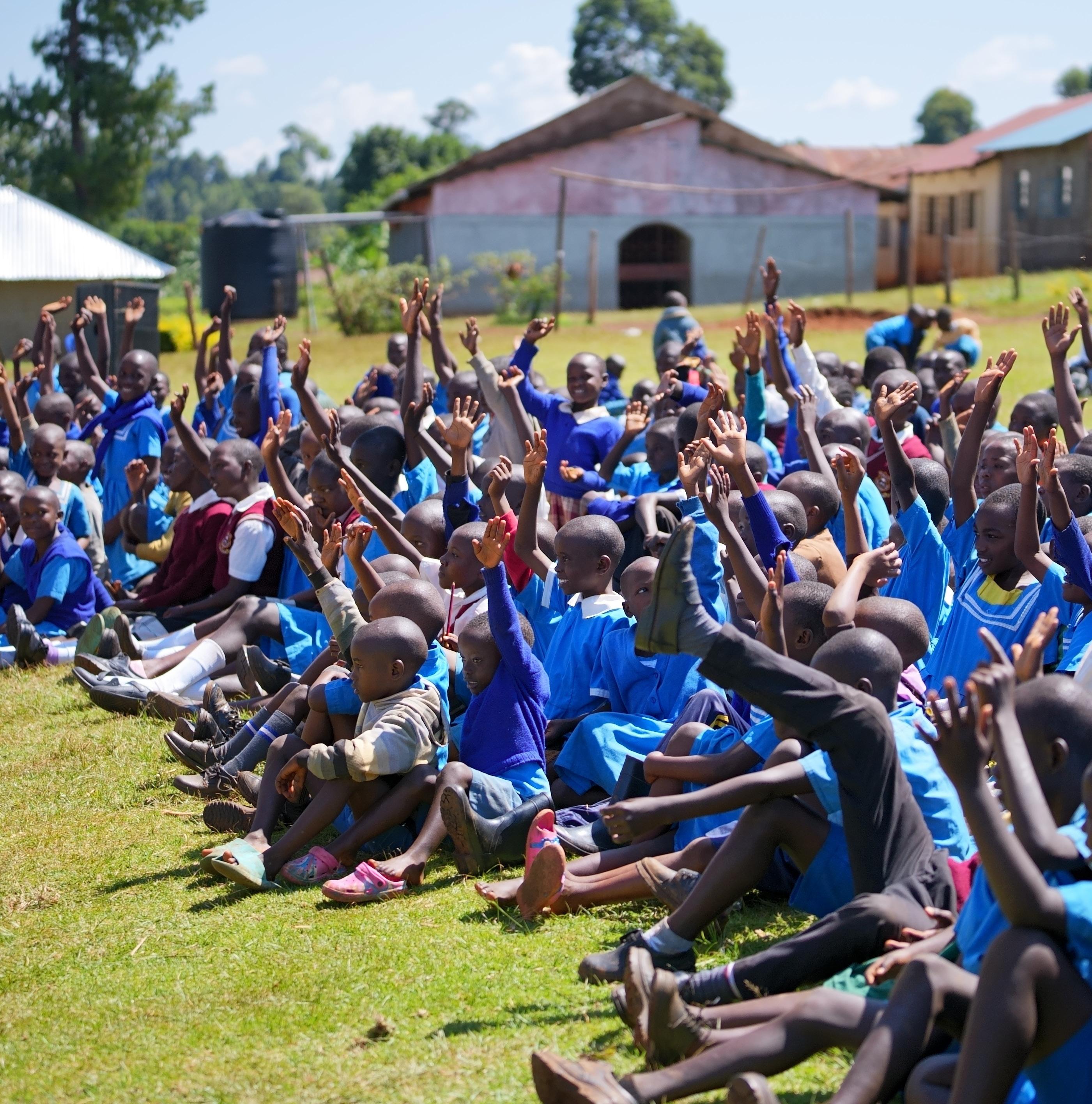
With global forced displacement exceeding 120 million people, the world is seemingly falling apart. However, the urgency of the moment demands positivity and action. My reason for optimism comes from the refugees themselves: their resilience and talents should continue to inspire the public, practitioners, and policymakers to innovate for solutions amidst changes and uncertainty.
This year, 36 refugee athletes from 11 countries hosted by 15 Olympic committees competed in 12 sports at the 2024 Paris Olympic Games. Led by Chef de Mission Masomah Ali Zada, an Afghan refugee, the Refugee Olympic Team won its first Olympic medal, thanks to Cameroonian boxer Cindy Ngamba.
In Malawi, a Congolese refugee founded the Tumaini Festival, an innovative cultural event that uses entertainment and arts to promote economic empowerment, intercultural harmony, and peaceful coexistence between refugees and host communities. Tumaini, meaning “hope,” has supported local entrepreneurs, created jobs, and amplified refugee voices, reaching 61 million people through media coverage. It also inspired the work of RAFDI scholar Lisa Gilman
My reason for optimism comes from the refugees themselves.
A young Sudanese refugee in Chad named Mouwahib Mahamat Adam made a positive impact on children. “They share their lands with us, I share my knowledge with them. I will always remember my time in Chad,” she says. Mouwahib was forced out of college by the ongoing Sudanese civil war, and her action inspired the village chief to provide her a piece of land. “Mouwahib has become our sister, and thanks to her...Her commitment has also made us understand that an educated woman can better serve others,” says one member.
The resilience, talents, and leadership of refugees are a source of inspiration that should be celebrated, nurtured, and promoted. Policies that recognize and unlock refugee potential will have a positive impact.
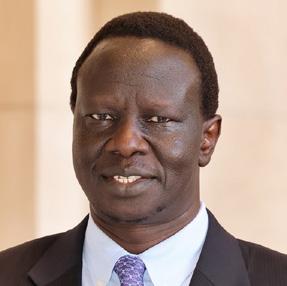
JOHN THON MAJOK Director, Refugee and Forced Displacement Initiative

The spread of artificial intelligence technology has caused some anxiety and fear, some of which is well-founded, but in jumping to the risks, we often miss the chance to celebrate the opportunities.
So much of scientific research is repetition, requiring long hours in the lab or in the field, sometimes to discover a dead end. With rising capabilities for artificial intelligence, we now have an opportunity to accelerate science by slicing through this repetition and reducing the number of dead ends we chase. Predictive systems like Alpha Fold allow researchers to condense years of experimentation into months or less, and help scientists spend more time on promising areas and less time on ideas that won’t pan out. Modeling systems allow researchers to create digital twins of human bodies or even of the Earth itself, allowing for prediction via simulation, or experimentation that’s otherwise impossible. Finally, basic automated systems allow labs to run experimentation at all times, rather than requiring human staff time to execute repetitive tasks.
...we now have an opportunity to accelerate science by slicing through this repetition and reducing the number of dead ends we chase.
Some of this has already been realized, some is yet to come. Overall, it is a source of great optimism that an era of massive scientific discovery and progress is ahead of us, which holds benefits for individuals, communities, businesses, and countries around the world.

KELLEE WICKER Director, Science and Technology Innovation Program
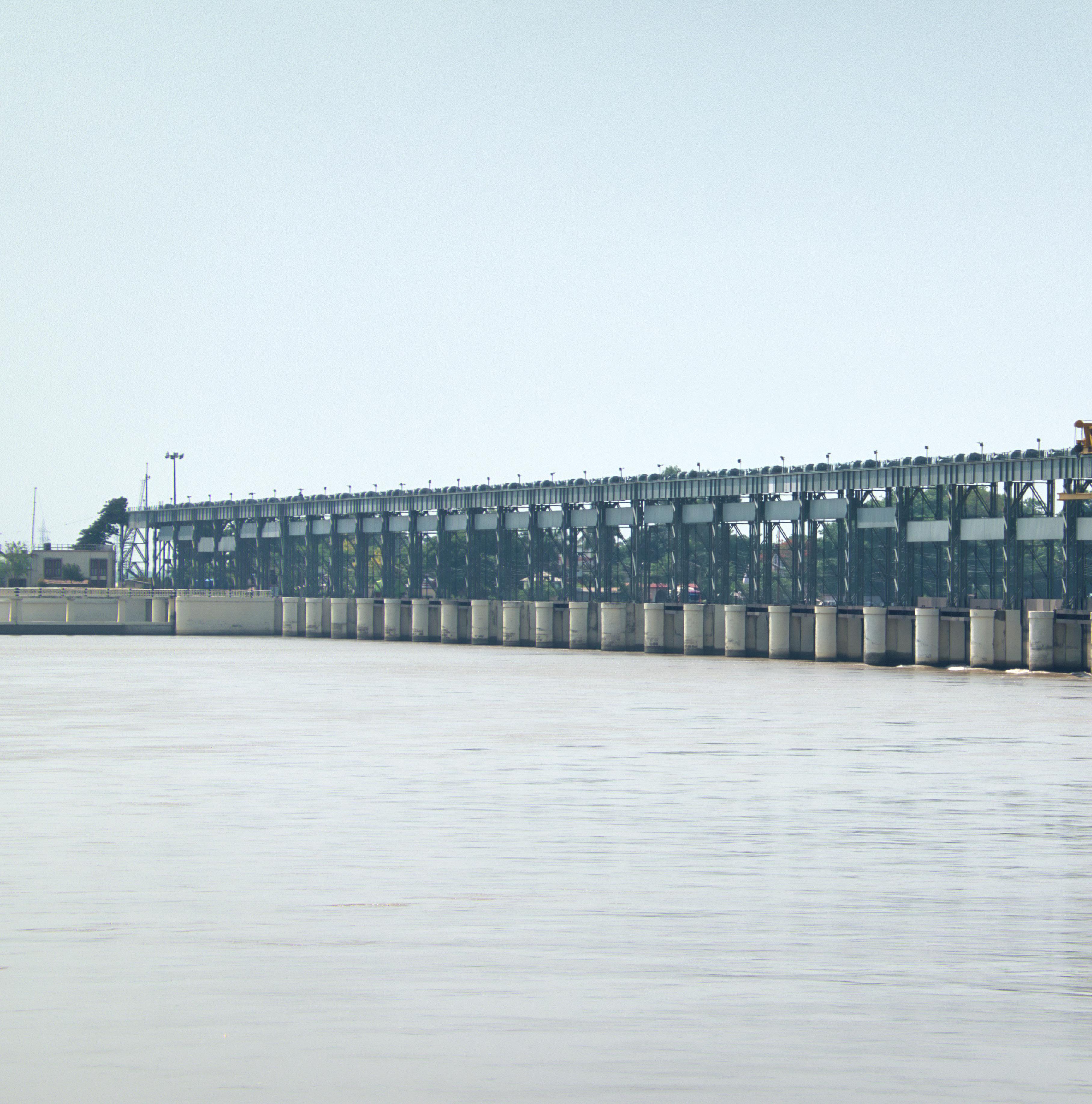
South Asia constitutes a quarter of the world’s population, occupies highly strategic real estate in the western reaches of the Indo-Pacific, and is home to India—the world’s most populous country, its fastest-growing major economy, and a key US partner. But because of poor infrastructure and tense relations among the countries of the region, South Asia has long been one of the world’s least connected regions. This has limited trade, development, and growth possibilities.
The good news is that this gloomy trend may finally be changing for the better. In November 2024, India, Bangladesh, and Nepal announced a landmark new electricitysharing deal. Bhutan and India also announced plans in 2024 to strengthen connectivity through the development of a cross-border rail link. Pakistan is working on a transnational railroad project to better link it to Central Asia. We can expect to see more progress on all these fronts in 2025. To be sure, there will be challenges, from financing to security. But regional capitals appear fully on board with pursuing these projects, which can boost commercial cooperation and serve as confidence-building measures that strengthen relations around the region.
In November 2024, India, Bangladesh, and Nepal announced a landmark new electricity-sharing deal.
A more stable and prosperous South Asia would help advance US strategic interests. Washington views the region, especially many of its littoral states overlooking the Indian Ocean, as a critical component of a US-Indo-Pacific strategy that aims to counter China and enjoys bipartisan support.
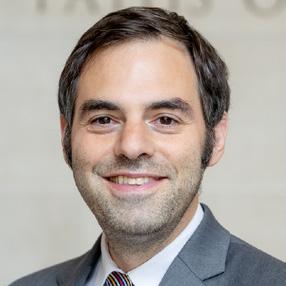
MICHAEL KUGELMAN Director, South Asia Institute

Often overlooked in international media amidst a world of worsening conflicts, the prodemocracy resistance in Burma continues to mount a heroic struggle to regain their country from military rule. It has been four years of grinding violence since the Burmese military overthrow of the country’s democratically elected government in February 2021, but the light at the end of the tunnel may soon be visible in 2025.
As of the end of 2024, the resistance movement now controls an estimated 50% of the country. The coalition has dealt the military multiple cascading defeats on battlefields across every state and region in Burma. Mass surrenders of demoralized junta troops are now a common occurrence.
The resistance groups are coordinating more closely and effectively than at any time during Burma’s decades long post-independence civil war, and the current coalition is the most diverse in Burmese history. Proclaiming their movement a “Spring Revolution,” there is great hope within the country that this time the Burmese people can forge their own future free of military repression and rule.
Mass surrenders of demoralized junta troops are now a common occurrence.
Although the Burmese military employs terror tactics against civilians in liberated areas, the humanitarian crisis remains grave, and China appears ready to back the junta to the hilt, the people of Burma continue to fight and make gains. There is a long way to go, but if 2025 is similar to each year since 2021, we can expect further resistance victories and more junta defeats.

LUCAS MYERS Senior Associate for Southeast Asia
The US is increasingly embracing infrastructure finance as a critical tool in strategic competition. Alarm over the success of China’s Belt and Road Initiative (BRI) in supporting infrastructure investment has begun to turn into action.
It began under President Donald Trump’s first administration, with the establishment of the US International Development Finance Corporation (DFC). The Biden administration added coordination with allies as the G7 committed to the Partnership for Global Infrastructure and Investment (PGII), intent on activating $600 billion in public and private investments globally. Rather than just complaining about the BRI, these efforts provide sustainable, transparent alternatives.
Alarm over the success of China’s Belt and Road Initiative (BRI) in supporting infrastructure investment has begun to turn into action.
There is a growing recognition that funding critical infrastructure shapes long-term economic, diplomatic, and security relationships. Infrastructure is the conduit through which commerce flows, not just original construction, but also replacement parts and upgrades. Additionally, economic relationships influence a nation’s values and norms.
Unlike other programs, the DFC can offer attractive interest rates and still achieve returns, given its low funding costs. In FY2023 the “DFC returned a net positive income of $340 million to the US Treasury from projects it invested in abroad.”
The BRI has enabled China to secure trade routes, natural resources, and strategic military outposts. It is important for the US to pursue every opportunity where the interests of host nations align with US strategic priorities, such as supporting secure and trusted communication, free and open ports, and resilient supply chains. This is the path to enduring relationships rooted in trust.

MARK KENNEDY Director, Wahba Institute for Strategic Competition

Woodrow Wilson International Center for Scholars
One Woodrow Wilson Plaza
1300 Pennsylvania Avenue NW
Washington, DC 20004–3027
Wilson Center
wilsoncenter.org
woodrowwilsoncenter
@TheWilsonCenter
@thewilsoncenter
The Wilson Center
© 2025, Woodrow Wilson International Center for Scholars